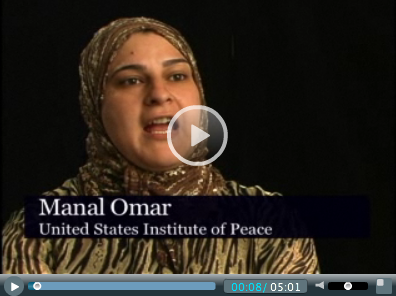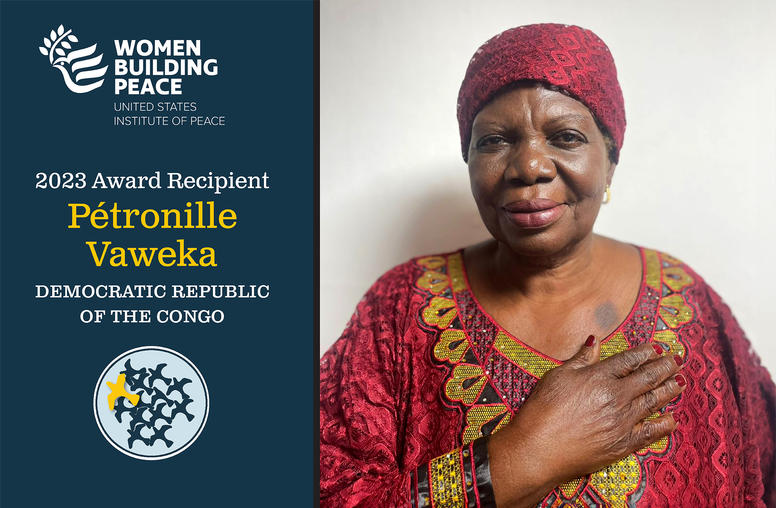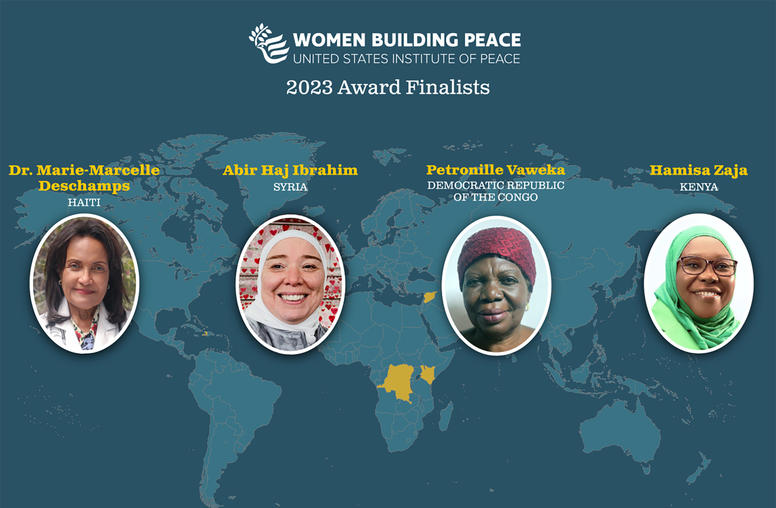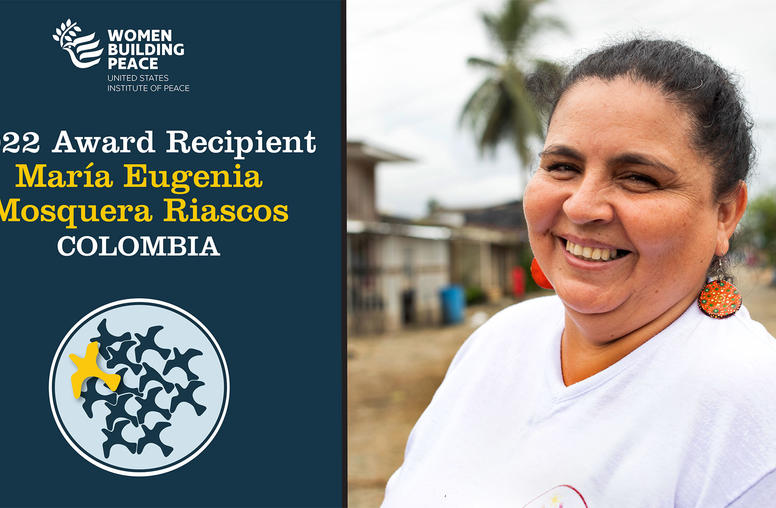USIP Expert Analyzes Iraq’s Elections
Upon the expected release of the full results of Iraq’s March 7 elections today, USIP offers expert Manal Omar’s analysis of the elections, their significance for Iraq, U.S. relations and the region.
For Immediate Release, March 26, 2010
Contact: Allison Sturma, 202/429-4725 or asturma@usip.org
(Washington) - Upon the expected release of the full results of Iraq’s March 7 elections today, USIP offers expert Manal Omar’s analysis of the elections, their significance for Iraq, U.S. relations and the region.
Omar says these elections show progress in developing Iraq’s political processes, civil society, and democracy, as well as opportunities for women.
Despite such advances, Omar says, “it is still too early to celebrate. There is a real potential for backsliding in areas where we have seen success. For example, early in 2003 and 2004, many Iraqis expected to see a leap forward in women’s rights and the freedom of the press. More recently, it is feared that these gains may be erased, particularly regarding women issues in Iraq.”
 The complete interview is available below.
The complete interview is available below.
Watch an additional video interview with Omar on security issues in Iraq.
For additional comments, please contact Manal Omar directly at momar@usip.org, or 202/429-1981 (office) or 202/739-1066 (cell).
On the Issues: Iraq Elections
Manal Omar
Posted: March 24, 2010
As of Tuesday, March 23, who is leading in the elections?
Currently, there is no clear lead in the elections. With some 95 percent of the vote counted, it appears to be a tie between Prime Minister Nuri Al-Maliki and his main rival Iyad Allawi.
What do these early results suggest about the state of civic and political life in Iraq?
The fact that there is such a close race is extremely exciting. It shows that both the civil society and the public’s political awareness in Iraq have matured significantly since the last election in 2005. In the last election, people largely voted in terms of their identity or religion.
In the months leading up to the elections, the discussions revolved around what candidates had done for citizens, and who would be able to respond to the consistent demands for security, electricity, water and essential services. At the same time, both parties in the lead have been running on heavily nonsectarian platforms.
Prime Minister Nuri Al-Maliki made a bold decision to break from the Shia alliance to form the "State of Law Alliance," which considers the rule of law essential for Iraq’s success. The other front-runner, Iyad Allawi, who served as the interim prime minister under the Coalition Provisional Authority in 2004, is well-known for his secular policies.
The fact that they are the primary winners clearly demonstrates that Iraqis are ready to move away from the sectarian politics, and demanding that the parties that represent them do the same.
What is the significance of these elections? What does this mean for U.S.-Iraqi relations going forward?
The fact that the elections happened is in itself a great accomplishment. Many wondered if these elections could be as euphoric as the 2005 elections. Now we see they indeed were.
This is great encouragement for Iraqis that a new democracy is emerging. In fact, the democratic process is improving. A strong majority in government were wedded to the idea of this election running on a closed list as it did in the last election. Due to grassroots pressure, this election ran with an open list -- an achievement that few expected to materialize.
The jury is still out on what this means going forward for U.S. relations, though a successful election is important for the U.S.-Iraq relationship in general. More broadly, these elections impact how Iraq will be viewed in the region. There are concerns from Iraq’s neighbors that the election could be followed by a peak in violence.
There are still two main questions that will determine if the election is indeed a success. First, how will the United Nations and Iraq's Independent High Electoral Commission respond to claims of fraud? Second, how long will it take to form the government?
There will be a lot of pressure for coalition-building between the different political parties. Without a clear front-runner, this process will be even more difficult. If final results are delayed as expected, this may indeed lead to a temporary spike in insecurity.
With the elections over, can the U.S. easily pack up and leave? What work is left to do?
The work for Iraq in reconstruction and nation-building is just beginning. The past seven years have been dedicated to stabilizing the country and gaining legitimacy for the Iraqi government. There are still crucial challenges that will need U.S. support. The shift will need to be primarily towards civilian technical assistance for initiatives such as capacity-building programs, delivery of essential services, and supporting Iraq as it develops relationships with its neighbors. At the same time, Iraq has had significant success in stabilizing internally, especially in comparison to the dark years of 2006 and 2007.
However, it is still too early to celebrate. There is a real potential for backsliding in areas where we have seen success. For example, early in 2003 and 2004, many Iraqis expected to see a leap forward in women’s rights and the freedom of the press. Indeed, early signs promised great progress. More recently, it is feared that these gains may be erased, particularly regarding women issues in Iraq.
A lot has been invested in Iraq, and a premature withdrawal without the proper support for Iraqi institutions could threaten important gains. Key to maintaining the U.S. presence is to provide consistent support in areas where we have had success to maintain the momentum, and to proactively address problems before they arise.
One of USIP’s big projects in Iraq is the women’s toolkit. What is it – and how does that support the U.S.’s long-term policy goals?
USIP and its network of Iraqi facilitators will lead a three-phase approach to building coalitions, creating space for dialogue and developing a shared vision, and providing tangible skills amongst female leaders. The goal of the women’s toolkit project is to improve women’s leadership in Iraq.
The first phase begins with a simulation exercise on governance; the second phase involves creating a vision statement for long-term goals. The third step is to create an action plan and identify strategic opportunities to improve women’s leadership.
This three-phase approach is the "USIP Toolkit for Collaborative Problem Solving," which when applied, provides meaningful solutions for conflict resolution and development, and leaves participants with the experience and tools to continue addressing their own needs.
In this particular project, we are focusing on women leaders as the target group. The three-phase approach will bring together female leaders from national leadership to provisional councils to civil society members. By interacting on these different levels, women may actually gain a comparative advantage. Few political leaders in Iraq have mastered the links between national and provincial level decision-making.
Through the toolkit, we hope to develop these links amongst women’s leadership. This skill will be important for other specific groups in the long term - and Iraq’s future stability.


